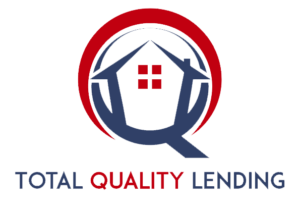The Key to Effective Goal Setting
You’re setting goals, but are you setting BIG goals and doing it correctly?
Understanding What “Big Goals” Means
We remember when we had our first opportunity as mortgage professionals to actually go out and talk to potential real estate agents. Obviously, our end goal was to be able to engage those agents to refer buyers to us. And we remember a mentor we had in my first couple of months, told us that the idea in life is to set big goals. We didn’t know what that meant. We understood big, but didn’t understand what it meant in relation to being a mortgage professional.
So we started working with real estate professionals and started having conversations about answering a question, “What does a victory look like this year for you? It could be professionally, personally, financially, physically, you could add anything you want to it. But whatever it is, it’s got to be big enough to pull you from where you are normally.”
We think what ends up happening in this idea of goal setting is we have two kind of extremes. We set Big, Crazy Goals, which is called BHAG,. And we set the other side of that, which is small, realistic goals. And there’s nothing wrong with small goals that lead to big goals. And there’s nothing wrong with big goals that require a bunch of small goals to be met.
But we think the thing that we’d like to convey is that a goal that is big enough to stretch you should be a goal that when you attain it, you look back and go, “Wow, I can’t believe that I did that.” But yet in that moment, you now believe that you can.
The Key to Setting Goals
So one of the keys is let’s not have too many goals. Another key is to determine: Are you better off having a big goal and missing it or having a small goal and hitting it? We think that depends on what you’re trying to do. If you achieve a number of small goals, and they’re in sequence, and they compound to make the big goal work, that’s great! There’s nothing wrong with micro victories. There’s nothing wrong with daily victories. There’s nothing wrong with saying, “Today my goal is to get one, and if I get one today at the end of the year, I know that I will have gotten 240, and boom, there’s my business plan.”
When we talk to loan officers and real estate agents about goal setting, there seems to be a lot of energy on wanting to do it, but then there seems to be less energy on focusing and following through. We think part of that is because we don’t really understand why we set goals in the first place.
Connecting Goals to Inspiration
Your goals have to be motivated by a deep inner spirit. Something going on inside your soul that is the inspiration for the goal. And when you can connect the goal to the inspiration for the goal, and you do it in such a way that reflects every day on your frame of reference, and doing what you’re doing, then all of a sudden you start to get that momentum.
And what we know about momentum is that it creates this kind of flywheel effect. And the flywheel effect is super straightforward. The more you achieve any one goal that leads you to the big goal, the more likely you are to achieve the big goal, because you have this flywheel experience. It’s the inertia that drives you to goal achievement.
We remember early on one of our mentors said, “You’re better to have a big goal and miss than to have a little goal and hit.” And he said, “If you aim too high and you miss, it’s not as detrimental as aiming too low and hitting, because it actually forces growth and causes you to move towards that level.”
So we think goal setting is huge!

Helping You Define Your Goals
One of the many reasons we’re excited about 2022 is that we have our entire team establishing their goals and building a plan to hold themselves accountable throughout the year. You’ll be amazed how a plan if set correctly and planned can turn into a series of wins that eventually compound together and form that consistency.

